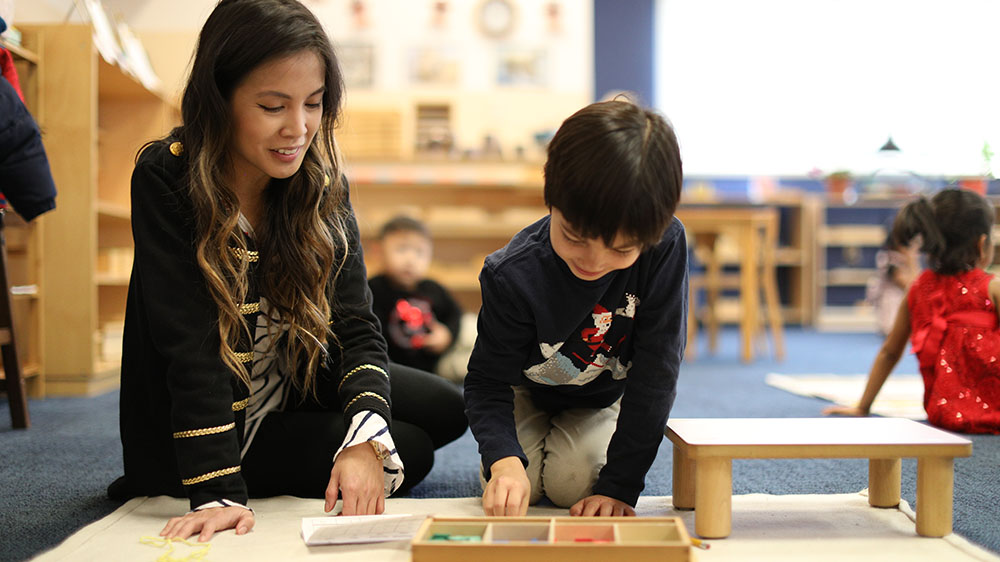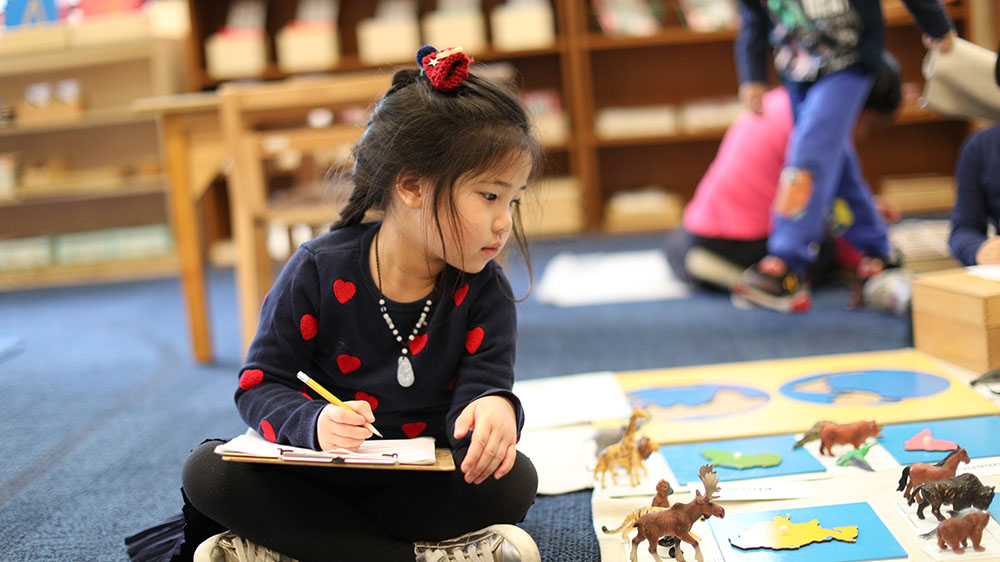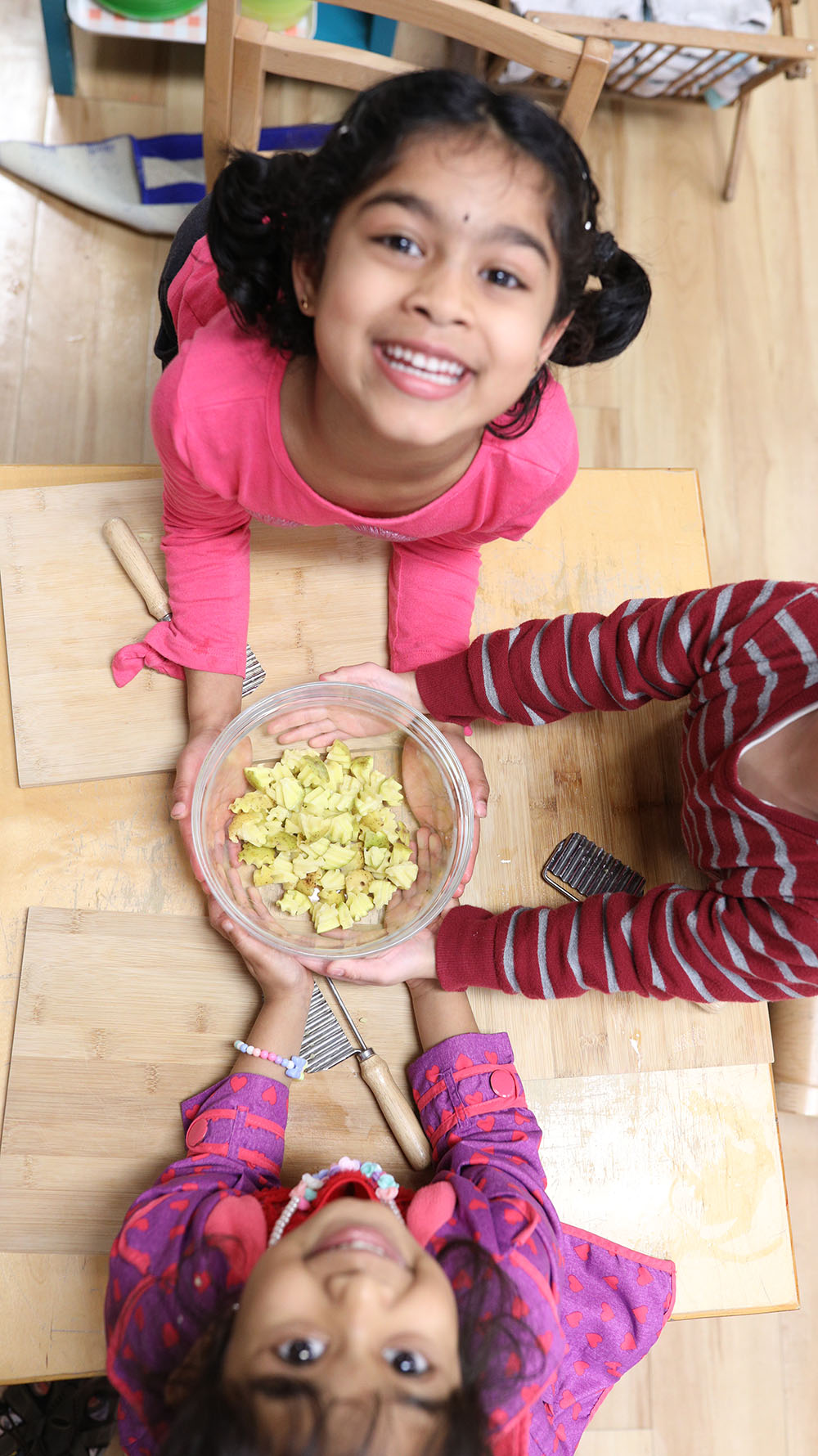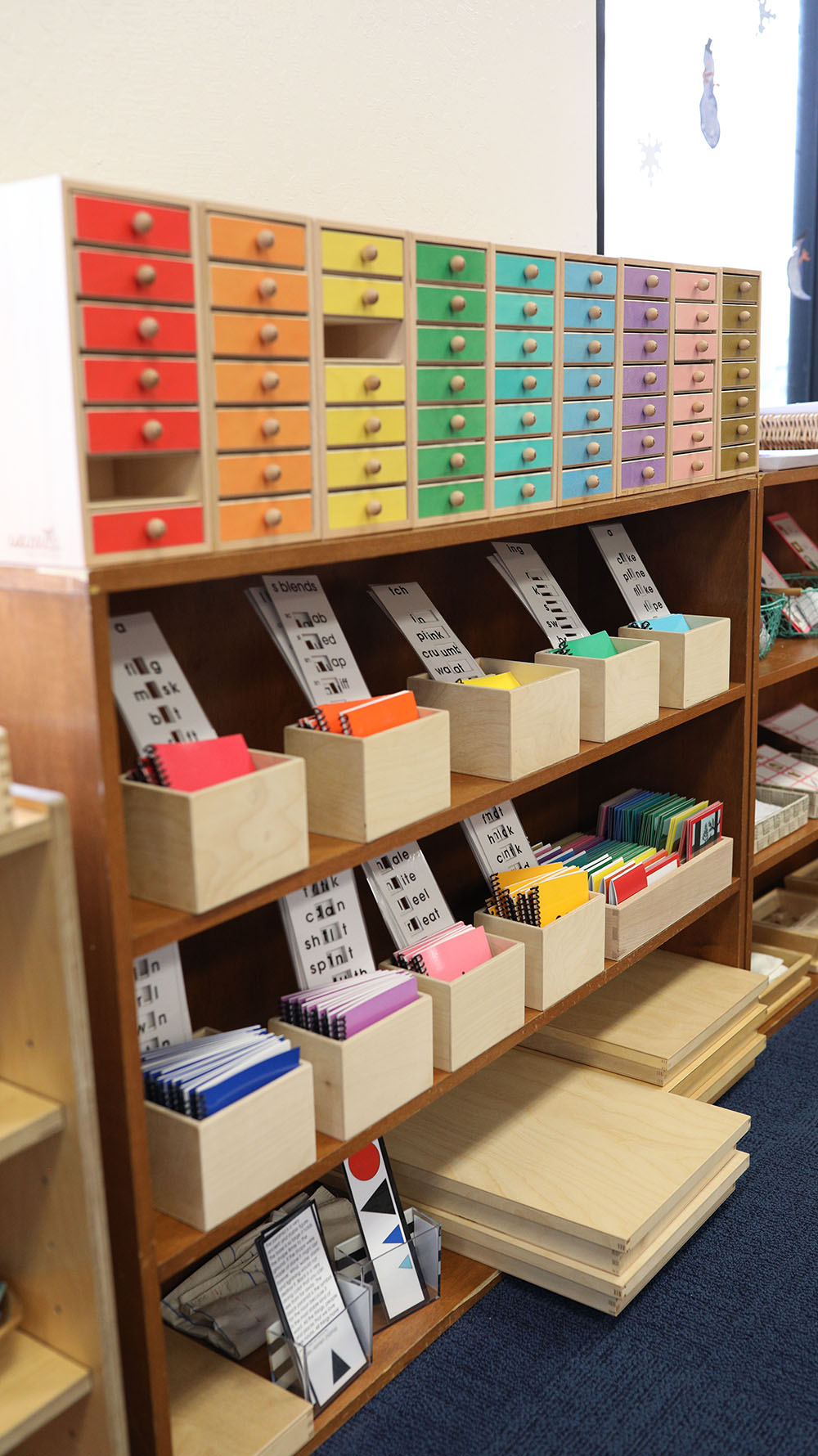Primary
Primary Program:
3 years to 5 years
Locations:
Offered at All Locations
Primary Program:
3 years to 5 years
Locations:
Offered at All Locations
As the foundational cornerstone of Montessori education, the primary experience supports the child’s natural inclination to seek out and master a wide array of life skills and cognitive abilities.
Our hands-on learning approach includes curriculum areas important and relevant to this particular stage of the child’s development: language, mathematics, sensorial, practical life, cultural studies, geography, botany, zoology, history, music, and art.
At MSOSV, the learning environment is more than just a classroom. Each primary space is a warm and secure community atmosphere designed to meet the child’s needs at every developmental step. Our Montessori-certified teachers are specialists in primary education, skilled at guiding each child through carefully planned activities and lessons that build sensory-motor skills, socialization, self-esteem, and independence, a sense of order, concentration, and cooperation.


Through careful observation, our teachers take cues from the child to determine the right developmental moment to personalize instruction and introduce appropriate materials. This allows children to learn and master skills at the most opportune time – the moment they as individuals are most sensitive to acquiring a new skill or absorbing a new concept.
Our method creates the optimal environment for mastery so children experience success often. Continual positive experiences naturally promote a love of learning, build independence, and establish a sense of empowerment.
The Montessori Primary program consists of the following areas:-
Children are free to work at their own pace. They share what they have learned while reinforcing their own knowledge. The layout and foundation of the Montessori Classroom is divided into 5 key areas; Practical Life, Sensorial, Math, Language, and Cultural.
Practical Life
The child is naturally attracted to activities that give him/her independence and control of his/her own life. A most important need of the young child is to develop self-awareness, large and fine motor skills, and coordination. Through movements using practical life exercises such as; sweeping, polishing, carrying water, pouring and washing a table, the child develops concentration, coordination and independence. The child follows a regular sequence of actions and joyfully learns good working habits. These activities provide the very foundation on which the child approaches more intricate academic exercises with ease.
Sensorial Exercises
Sensorial materials in the Montessori classroom are designed to develop and refine the senses of the young child and enable the child to understand the many impressions he receives through the hands on experiences. Each of the Sensorial Materials isolates one defining quality such as color, weight, shape, texture, size, sound or smell. The Montessori Sensorial Materials help the child to distinguish, categorize, identify and make connections to his own experiences both in and outside of the classroom. These valuable experiences with the materials in the classroom increase his perception and ability to process new information, leading to creative thinking and curiosity
Mathematics
The Montessori Math Materials begin with the most concrete and simplistic form of introducing quantities and symbols. Once these concepts are mastered, the child can then begin to explore with more abstract materials and ideas such as operations of addition, multiplication, subtraction and division. These exercises not only teach the child to calculate, but they provide a deeper understanding of how numbers function.


Language
The Montessori child begins reading and writing when he is ready and proceeds at his own pace. His experiences in practical life and sensorial education serve as a preparation for this by developing fine motor-skills, attention to detail, directionality, and concentration. These activities serve as a preparation for the time when the child assimilates what he knows and explodes into reading and writing.
Letter Sounds Used in the Montessori Phonetic Program
In a Montessori program, letters are introduced by their sounds to encourage phonetic language skills. This is one of the key elements in learning to read. Phonemes are the sounds that form words. Please avoid referring to the letters of the alphabet by only their names, but as much as possible refer to the letter by their sound. At school we are teaching your child the initial sounds of letters in many ways. When reading alphabet books, it often makes sense to use the sound and the name of the letter.
Cultural
Monthly cultural topics are covered based on the school’s cultural calendar. These topics include but are not limited to the study of Zoology, Botany, and Geography.
Circle time
Small group presentations incorporate art and music to reinforce ideas and lessons given in practical life, sensorial, language, mathematics, science, and cultural activities. Circle time also includes daily calendar, grace and courtesy lessons, stories, poetry, and games.